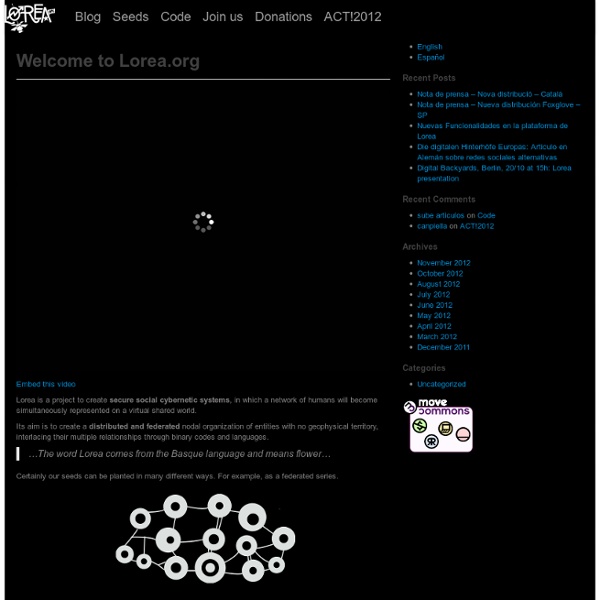



An Introduction to the Federated Social Network | Electronic Frontier Foundation - Minefield Lately, EFF's work to protect rights and liberties in the online world has focused rather heavily on social networking sites and their policies. The logic is borne out by the numbers — Facebook and Twitter combined claim hundreds of millions of worldwide users, so advocating for stronger privacy and less censorship from these kinds of websites will mean a better Internet for lots and lots of people. But ultimately, what we want to see in the long-term is for users to gain more control over their activity online. Unfortunately, giving facts, photos, locations, and other personal details to monolithic, company-owned social networking websites — whose business models are generally based on gathering, using, and monetizing data about you; and which may be vulnerable to government pressure tactics — will always be a trade-off. How does a federated online social network work? How will federated social networks be different? What will that likely mean in practice? Why is this important?
Distributed social network - Wikipedia, the free encyclopedia - Minefield The Electronic Frontier Foundation, a U.S. legal defense organization and advocacy group for civil liberties on the Internet, endorses the distributed social network model as one "that can plausibly return control and choice to the hands of the Internet user" and allow persons living under restrictive regimes to "conduct activism on social networking sites while also having a choice of services and providers that may be better equipped to protect their security and anonymity".[2] Comparison of software and protocols [edit] From a societal perspective, one may compare this concept to that of social media being a public utility. Notes and references[edit] See also[edit] External links[edit]